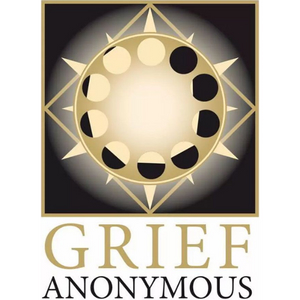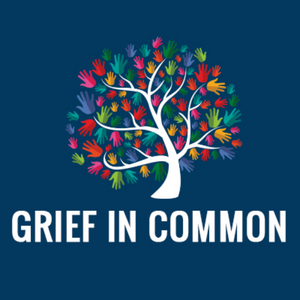5 Best Online Grief Support Groups 2024: Top Virtual Grief Counseling
All articles are produced independently. When you click our links for purchasing products, we earn an affiliate commission. Learn more about how we earn revenue by reading our advertise disclaimer.

Better Help
- Licensed, professional counselors
- A wide variety of therapy options
- Video, chat, phone, one-on-one options
20% Off First Month: healthcanal

Grieving.com
- Free membership
- Thousands of members
- Support for different types of loss

Hope Again
- Free membership
- Offers one-on-one counseling
- Offers video chats
Grief is a part of life, but it’s also one of the hardest things to go through alone. Everyone going through a tragic or traumatic event should use some support[1] and help, even when they don’t think they actually need it. Whether you talk to a friend or a family member, or join online grief support groups, it can only do you good since you get to express your emotions, talk to someone who’s gone or going through the same thing, and find some closure in these difficult times.
There are plenty of benefits of group therapy and you’re more likely to share your own experiences after hearing others around you. You are also more likely to find someone whose story will resonate with you and help you cope and deal with your tragic situation. Grief means different things for different people and not only does it manifest itself in a variety of ways, but the coping mechanisms can also drastically differ from person to person.
5 Best Online Grief Support Groups in (April. 2024)
- Better Help – Best Professional Counselors
- Grieving.com – Editor’s Choice
- Hope Again – Best for Millenials
- Grief Anonymus – Best Social Media Application (App)
- Grief in Common – Best Chatting Options
What Are Grief Support Groups?
Grief support groups come in many different forms, but as technology has advanced, plenty of them have either fully transitioned online or even formed as a part of a different, more modern holistic approach.
The main difference between online and in-person support groups is obviously the way you attend them. While in-person groups usually have a physical meeting place, online support groups are accessed through digital media.
And even though this differentiation is obvious, many factors[2] can play a big role in your overall experience. Online support groups can be a great way for someone to start, as seeing people face to face and actually driving up the nerve to go and attend a meeting can be daunting and cause you to create a million excuses why not to go.
That’s why simply logging online can be a great first step for those who have anxiety about these kinds of meetings and have closed themselves up in the face of trauma. And even though most facilitators still prefer in-person meetings when asked[3], they’re aware of the need for online support and its benefits.
How We Selected The Best Online Grief Support Groups
We believe that support groups need to have credibility, so the first thing we looked at were discussion forums and testimonials. People need to feel safe and accepted in these group environments when there are rarely any mental health professionals involved.
Creating trust within a group of people will help you open up and start the healing process much sooner, giving you all the tools you need to push through this difficult period. Feeling like your emotions are valued and your concerns are acknowledged means more than just being told “It’s gonna be OK,” because, at the end of the day, no one really knows what’s going to happen in the future.
The best online support groups help you deal with your situation, but also allow you to grieve in the first place. It’s important to find the right community that will be free of judgment, allow everyone to speak their mind, and help find ways to push through it together.
5 Best Online Grief Support Groups in 2024
Better Help

Better Help is one of the best online therapy platforms, consisting of licensed, professional counselors who can help you push through anything, from your depression and anxiety symptoms to eating disorders or a grieving process.
- Licensed, professional counselors
- A wide variety of therapy options
- Video, chat, phone, one-on-one options
- A less affordable option
Better Help is one of the best online grieving support groups and has helped thousands of clients worldwide. It offers a variety of different therapy options, all managed by mental health professionals. It offers professional grief support which might be the best option for someone who wants more credibility or needs help from a licensed therapist when talking to their peers doesn’t seem to work.
It’s not the most affordable option, so those who are just looking for some support might not reach for this option. However, there are plenty of people who can’t find the light at the end of a tunnel and need help from a professional as a way to cope with loss, grief, or tragedy.
An online support group doesn’t always have to be in the form of engaging with people going through the same thing. It can also be a one-on-one call with a therapist or counselor who will give you tools you can implement and cope better.
They offer grief support for individuals and couples, but also parents who are trying to support their child who is grieving. Still, while this platform is managed by professionals, it’s still not a replacement for those who are in severe crisis or danger.
Grieving.com
For anyone who’s going through any type of loss, Grieving.com is the best possible solution. It’s free and therefore doesn’t require any risk or commitment on your end.
- Free membership
- Thousands of members
- Support for different types of loss
- Requires registration
Grieving.com was founded with one thing in mind: helping people going through a traumatic event and dealing with feelings of grief. It offers free online grief counseling and requires no commitment on your end, no minimum number of posts or joined discussions, nor even any participation whatsoever.
If you simply want to browse and read your way through the forum discussion boards and messages, Grieving.com offers a vast variety of options. It’s also one of the oldest online grief support communities, founded back in 1997.
Whether you’re grieving a loss of a friend, a family member, or your unborn child, you’ll find a support group for you and discover tools that will help you cope. And if and when you choose to participate in the discussion, ask and there will be someone to answer.
The site is regulated and overseen by moderators, but it’s not run by a mental health professional or a grief counselor. However, before you decide to become a member (even though it’s free), Grieving.com lets you read through most of these topics until you hit page 15. That’s still plenty of content for you to browse through to see if this particular online support group is for you.
The site relies on donations and offers a marketplace where anyone can share products and services that can potentially help you on your healing journey.
Hope Again
Hope Again is created for young people by young people and it’s a space for sharing personal stories with the hope of helping others go through loss and grief.
- Free membership
- Offers one-on-one counseling
- Offers video chats
- No text chats or discussion boards.
Hope Again is a safe space created for young people who go through personal trauma and loss, experience a death of a loved one, or simply need support after tragic events. It’s based on video shares and personal stories with the hope of helping others going through the same thing.
It’s a free online counseling youth website of Cruse Bereavement Support, and it’s specifically created for young people so that they can identify with their peers and implement the best coping mechanisms that work for their age.
They also offer guidance and support for parents to help their children transition through this tough period as well as one-on-one grief counseling that might be a great option for many people who don’t want to join bereavement support groups.
Not everyone grieves or copes in the same way and some people might discover that reading other people’s personal stories or watching their honest and vulnerable videos can help them heal more easily and make them feel less alone in their grief. They might then be inclined to share their own story in hopes it will help others who are going through the same thing.
Grief Anonymous
Grief Anonymous is a great online support group in the form of Facebook groups that serve a large community of people looking for help in coping with loss and trauma.
- Free membership
- Facebook group
- Large community of people
- You need to have a Facebook account to join
If you’re social media savvy, you’ll probably browse through Facebook groups in the hopes of finding the right online support group for your life situation. Grief Anonymus is exactly that and it offers a large variety of discussions and coping mechanisms, no matter what you’re going through.
Even though it’s open to anyone who is a Facebook user, it requires its members to adhere to Facebook’s Cardinal Rules of Communication and Engagement, as it ensures a judgment-free zone where people can get the online support they need and seek in online groups.
With over 20 grief-specific confidential online groups, Grief Anonymous offers 24/7 support and caters to those Facebook users who don’t want to join an additional online support group or register their account on a new website.
The online support group is monitored, but not by mental health professionals, so keep that in mind when listening to advice.
Grief in Common
Grief in Common is an online support group that helps you find resilience and reach personal growth in times of great sadness and loss.
- Free membership, but an additional fee for live-chat support
- Very user-friendly
- Offers a variety of different resources
- Live-chat support is $0.99 per month or $9.99 per year
One of the best online support groups, Grief in Common helps you find the best way to cope and grow, via live chat support, through the hardest times. A large community of satisfied clients talks about how much this site helped them in difficult times, offering not only support and help but a new perspective on grief.
The site can match individuals who have gone through similar grief experiences and also allows you to enter chat rooms and talk to a variety of like-minded people who are all on their grieving and healing journey.
It’s a safe, non-judgmental space where those who need help can feel valued and accepted, sharing their thoughts and feelings without any fears or worries. More than merely leaving messages in a forum or discussion group, members can join live chat rooms and talk to someone in real-time. Sometimes, that’s exactly what a person needs–just someone who will be there for them any time of the day.
Final Thought
Online support groups consist of forums and discussion groups that offer resources, help, and coping mechanisms one can apply to their experience. Some of them offer live support, one-on-one calls, and video chats to further assist a person going through a rough period, while others share personal stories and videos one can browse through to find one that resonates.
Whether you’re grieving a loss of a loved one, going through a difficult divorce, or struggling with pregnancy or infant loss, there’s a grief support group for you. Everyone needs a safe space that’s free of judgment and lets them be themselves when they need to heal, so choose between grief support groups near your area or an online forum and get the help you need.
Frequently Asked Questions
Online support groups and grieving groups offer help and support to anyone who’s dealing with a loss, a tragic event, or any kind of trauma. Whether it’s ongoing support or a resource section, anyone can find something to help them cope through difficult times.
Even though depression symptoms and anxiety are common in coping with grief, sometimes support groups aren’t the right fit for you. In situations of extreme stress[4] and anxiety that impair your daily functioning abilities, it’s best to visit a mental health professional and get professional help.
Grief is a natural human reaction to a loss or tragedy. Its duration depends on the individual and their situation, but on average[5] is thought to dissipate in the span of a year. Prolonged grief disorder[6], also known as complicated grief, is considered to be an unsuccessful transition from acute to integrated grief[7] and might cause serious health complications and cardiovascular problems.
Every mental health professional will recommend support groups or a grief coach, but also in their own scope of work use cognitive behavioral therapy (CBT)[8] and acceptance and commitment therapy (ACT)[9]. Both are great options to try out to find ways to cope with your loss.
Under the Kübler-Ross model[10], there are five stages of grief (denial, anger, bargaining, depression, and acceptance), but over the years, experts have expanded this delineation into seven. These are:
– Shock, denial, and isolation
– Pain and guilt
– Anger and bargaining
– Depression
– The upward turn
– Reconstruction and working through
– Acceptance and hope
Not everyone[11] who’s experiencing grief goes through all five or seven stages, and you should always meet the person where they’re at and not put their feelings and experiences in boxes, labels, and stages.
The best ways to support a person going through a grief-related problem include:
– Reaching out
– Offering help and support
– Being a no-judgment listener
– Encouraging joining support groups
– Listening instead of advising
+ 11 sources
Health Canal avoids using tertiary references. We have strict sourcing guidelines and rely on peer-reviewed studies, academic researches from medical associations and institutions. To ensure the accuracy of articles in Health Canal, you can read more about the editorial process here
- and, S. (2020). Grief, Bereavement, and Coping With Loss (PDQ®). [online] Nih.gov. Available at: https://www.ncbi.nlm.nih.gov/books/NBK66052/
- Maruyama, N.C. and Atencio, C.V. (2008). Evaluating a bereavement support group. Palliative and Supportive Care, [online] 6(1), pp.43–49. doi:10.1017/s1478951508000072.
- Lubas, M. and De Leo, G. (2014). Online Grief Support Groups: Facilitators’ Attitudes. Death Studies, [online] 38(8), pp.517–521. doi:10.1080/07481187.2013.873840.
- Anon, (2022). Grief and Loss. [online] Available at: https://www.cdc.gov/mentalhealth/stress-coping/grief-loss/index.html
- Mughal, S., Azhar, Y., Mahon, M.M. and Siddiqui, W.J. (2022). Grief Reaction. [online] Nih.gov. Available at: https://www.ncbi.nlm.nih.gov/books/NBK507832/
- Psychiatry.org. (2022). Psychiatry.org – Prolonged Grief Disorder. [online] Available at: https://psychiatry.org/patients-families/prolonged-grief-disorder
- Shear, M.K., Ghesquiere, A. and Glickman, K. (2013). Bereavement and Complicated Grief. Current Psychiatry Reports, [online] 15(11). doi:10.1007/s11920-013-0406-z.
- de Groot, M., de Keijser, J., Neeleman, J., Kerkhof, A., Nolen, W. and Burger, H. (2007). Cognitive behaviour therapy to prevent complicated grief among relatives and spouses bereaved by suicide: cluster randomised controlled trial. BMJ, [online] 334(7601), p.994. doi:10.1136/bmj.39161.457431.55.
- Speedlin, S., Milligan, K., Haberstroh, S., Speedlin, T. and Stacy (n.d.). Using Acceptance and Commitment Therapy to Negotiate Losses and Life Transitions. [online] Available at: https://www.counseling.org/docs/default-source/vistas/article_121cc024f16116603abcacff0000bee5e7.pdf?sfvrsn=4.
- Counseling Center. (2020). The Stages of Grief: Accepting the Unacceptable. [online] Available at: https://www.washington.edu/counseling/2020/06/08/the-stages-of-grief-accepting-the-unacceptable/
- Stroebe, M., Schut, H. and Boerner, K. (2017). Cautioning Health-Care Professionals. OMEGA – Journal of Death and Dying, [online] 74(4), pp.455–473. doi:10.1177/0030222817691870.





